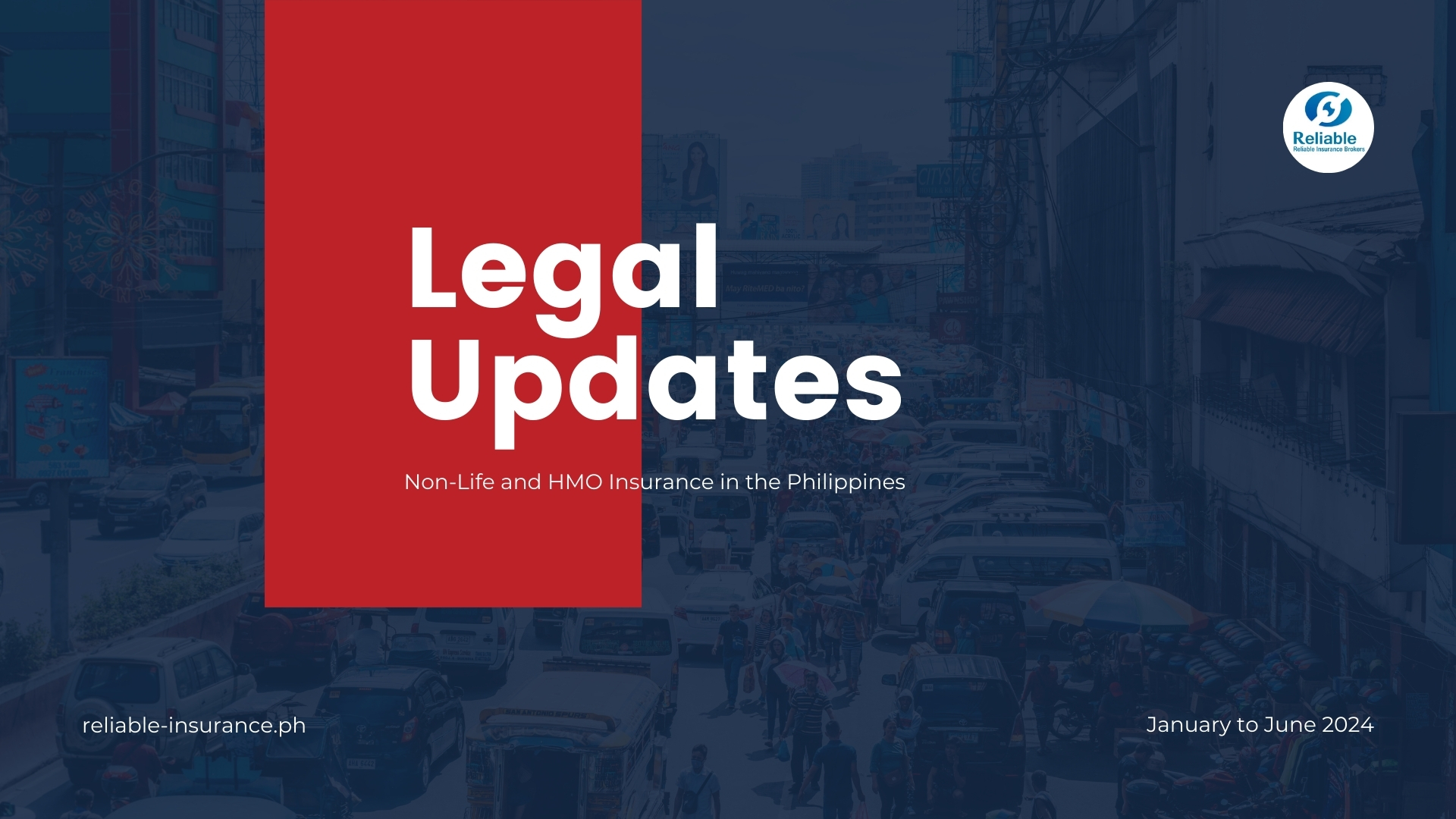The insurance industry is a dynamic sector, constantly evolving to meet new challenges and regulatory requirements. In 2024, significant legal changes have been introduced in the non-life insurance and HMO segments in the Philippines. These updates are crucial for policyholders and industry professionals alike. Understanding these changes can help you stay compliant, make informed decisions, and ensure your policies provide the protection you need. This article delves into the recent legal changes, their implications, and the benefits of staying informed.
Overview of Recent Legal Changes
In 2024, the Insurance Commission of the Philippines implemented several legal updates aimed at enhancing consumer protection and industry stability. Key changes include:
- Enhanced Consumer Protection: Circular Letter No. 2024-11 mandates the strict implementation of minimum rates for earthquake, typhoon, and flood covers. This regulation ensures policyholders receive adequate coverage without hidden costs. Additionally, participation in the Philippine Catastrophe Insurance Facility (PCIF) is now required, enhancing the industry's ability to manage large-scale disaster risks.
- Stricter Solvency Requirements: Circular Letter No. 2024-14 introduces new solvency standards requiring insurers to maintain higher financial reserves. This measure ensures that insurers can meet their obligations to policyholders even during times of significant claims, bolstering the financial stability of insurance companies.
- Digital Transformation Initiatives: Circular Letter No. 2024-12 and Circular Letter No. 2024-08 introduce guidelines for the electronic filing of audited financial statements and the electronic submission of annual statements. These changes facilitate smoother and more secure online transactions for both policyholders and insurers, reflecting the industry's ongoing digitalization efforts.
- Environmental Risk Management: Circular Letter No. 2024-14 requires insurers to integrate climate-related risk assessments into their underwriting processes. This initiative promotes sustainability and resilience within the insurance industry by ensuring that environmental risks are adequately accounted for.
- Increased Benefits for Compulsory Motor Vehicle Insurance: According to Insurance Memorandum Circular No. 2024-01, there has been an increase in benefits for compulsory motor vehicle insurance coverage. This update aims to provide better protection and higher compensation for motor vehicle accidents, reflecting the growing need for comprehensive motor insurance benefits.
- Application of PFRS 17: Circular Letter No. 2024-04 mandates the application of Philippine Financial Reporting Standard 17 (PFRS 17) to the audited financial statements and reportorial requirements of insurance and professional reinsurance companies. PFRS 17 establishes principles for the recognition, measurement, presentation, and disclosure of insurance contracts, significantly impacting the preparation of financial statements.
- Accreditation of External Auditors: Circular Letter No. 2024-03 provides a revised framework on the accreditation of external auditors, ensuring that they adhere to high standards of quality control and understand the operations and risk exposures of the entities they audit, including HMOs.
Implications for Policyholders and Insurers
These legal changes bring several benefits and challenges for both policyholders and insurers:
- Increased Transparency and Greater Security: Enhanced disclosure requirements mean policyholders will have a clearer understanding of their coverage, helping them make more informed choices. Stricter solvency requirements ensure that insurers are financially stable, providing greater peace of mind for policyholders.
- Improved Access to Digital Services and Compliance Costs: Regulations on digital insurance services ensure that online policy purchases and claims processes are secure and reliable. However, meeting the new regulatory requirements may involve additional costs for insurers, including investments in technology and staff training.
- Enhanced Motor Insurance Benefits and Operational Adjustments: The increased benefits for compulsory motor vehicle insurance provide better financial protection in the event of accidents, ensuring higher compensation and support during critical times. Insurers will need to adjust their motor vehicle insurance policies to reflect the increased benefits, ensuring they comply with the new regulations and provide adequate coverage.
- Environmental Risk Management and Competitive Advantage: Integrating climate-related risk assessments into underwriting processes promotes sustainability and resilience within the industry. Companies that effectively implement these changes may gain a competitive edge by offering more transparent, secure, and sustainable insurance products.
- Financial Reporting Compliance: The implementation of PFRS 17 will require significant adjustments in the preparation of financial statements, impacting how insurance contracts are recognized, measured, and disclosed. Insurers must ensure compliance with these new standards to maintain transparency and accuracy in their financial reporting.
- Quality Control in Auditing: The revised framework for the accreditation of external auditors ensures that audits are conducted with high quality and compliance standards, improving the reliability of financial reporting for insurers and HMOs.
Staying informed about the latest legal changes in the non-life insurance and HMO sectors is essential for both policyholders and insurers. These updates not only enhance consumer protection and industry stability but also promote transparency, security, and sustainability. By understanding and adapting to these changes, you can ensure that your insurance policies continue to provide the protection you need in an evolving landscape.
For more detailed information on how these legal changes may affect your insurance policies, or to review your current coverage, contact Reliable Insurance Brokers today. Our team of experts is here to help you navigate these updates and ensure you have the right protection in place.
Sources:
- Insurance Commission of the Philippines. (2024). New Regulatory Guidelines for Non-Life Insurance Companies. Retrieved from www.insurance.gov.ph/circular-letters




